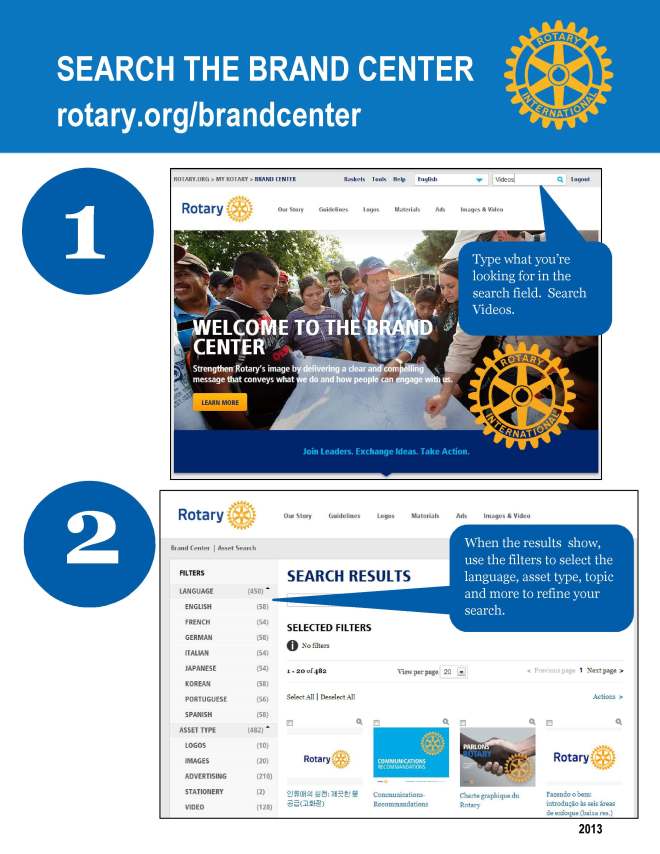
Tag: public image
Signature Projects Deliver Significant Benefits
Gayle Knepper, Zone 24W Rotary Coordinator
Project Profile: Unique Rotary Park Project in Novosibirsk Builds Partners, Visibility & Members While Supporting Children with Disabilities
(see Jan ’14 issue of Zones 24/32 newsletter for full article on signature projects)
Many clubs are looking for ways to become involved in a new area of service — in other words, a new project — to meet changing needs of their communities, re-motivate members and stimulate involvement from non-Rotarians. If this describes your club, now may be the time to consider a signature project.
One example of a signature project is the major park project undertaken by the Novosibirsk Initiative club (District 2225). Although still in development, the project is already delivering benefits to the community, to the club and to Rotary.

“Rotary Park” is well recognized in Novosibirsk, a city with about 1.5 million residents. A primary goal of the park is to create a unique place for play, socialization and physical activity of children with disabilities.
A distinctive aspect of the project is that there are no other parks in the city that serve the needs of handicapped children, similar to most other cities in Russia. Alexey Sukhorukov, club president says a significant problem is that there are not “regular” playgrounds for children who have handicaps. He describes the lack of accommodations for people of any age with disabilities; for example, there are not ramps or elevators in multi-story buildings and little way to use wheelchairs in public places. As a result, there are few interactions between handicapped and non-handicapped individuals. Many young children have never met a handicapped child and they do not know how to connect, communicate or play together. As a result, they are often frightened of each other. Alexey says, “The primary purpose of Rotary Park is to give children an equal opportunity: first, to give disabled children the same chance to play and learn through activities as other children. Perhaps, even more importantly, the opportunity for disabled and non-disabled children to meet and get to know each other, become accepting of each other through play, to form friendships and to lose their fear of something they do not know.”
Because of the uniqueness of the project and the need it addresses, the club has developed numerous community, business and governmental partners to support the project. One example is the lengthy negotiations held with local government which resulted in the donation of land for the park in the center of the city.
The project is funded in part with a grant from The Rotary Foundation, and many contributions from businesses and individuals in Russia and from around the world. These were acquired through fundraising events such as a masquerade ball, club-sponsored “Red (clown) Nose” and “I Did a Good Deed” days, and crowd funding on Russian and international sites. The events and the park have been heavily promoted using social networks. The park’s groundwork was completed in the summer and first equipment was installed in the fall before the snow fell. During the winter, additional fundraising will continue for the purchase of the remaining equipment. (There are still opportunities for involvement by other Rotary clubs if interested.) The total cost of the project is nearly $500,000 US which includes building materials, development work and playground structures. The goal is to officially open the park to the public on 1 June 2014, celebrated throughout Russia as the “Day of Defense of the Child.”
One other benefit of the project? The membership in the club has increased from 21 members in July 2012 to 40 today, an increase of 90%. Club leaders say this is due, in large part, to the increased visibility of Rotary and interest of the business community in becoming involved as a result of the park project. For more information on the project, contact coordinator, Michael Kunitsyn.
If you are interested in planning a signature project, contact the Rotary Coordinator in your region to discuss steps to get started.